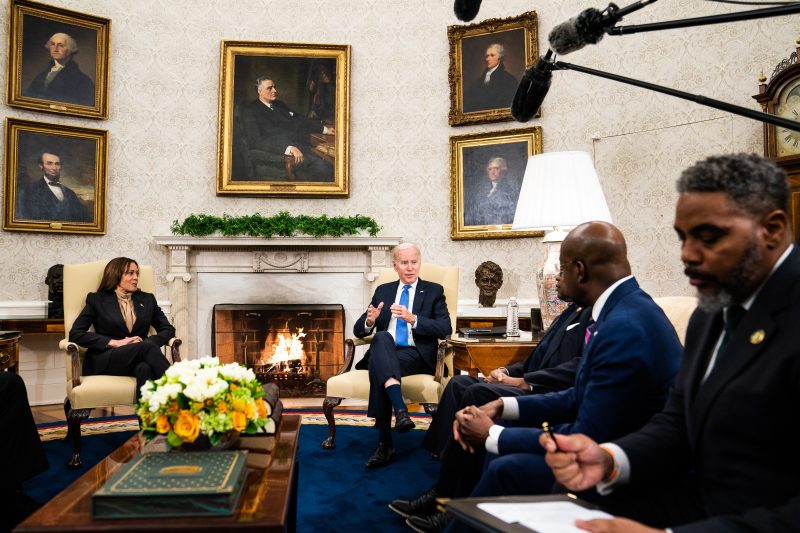In the wake of the upcoming U.S. presidential election, the Democratic ticket comprising Kamala Harris and Joe Biden is set to address a group of influential Black leaders in a bid to secure the pivotal voting bloc of people of color. This high-stakes gathering marks a crucial moment in the campaign as both Harris and Biden strive to highlight their commitment to addressing the concerns and priorities of Black communities across the nation.
The meeting, which is seen as a strategic move by the Biden-Harris campaign, is a significant step towards cementing the support of minority voters who play a pivotal role in deciding the outcome of the election. With issues such as racial justice, police reform, economic disparities, and healthcare at the forefront of the national conversation, the Democratic nominees are under pressure to present a cohesive and inclusive vision that resonates with the diverse experiences and aspirations of Black Americans.
Kamala Harris, as the first woman of color on a major party ticket, brings a unique perspective and personal history that has the potential to inspire and mobilize communities of color. Her background as a prosecutor and Senator has garnered both praise and criticism within the Black community, and her approach to criminal justice reform and racial equity will undoubtedly be under scrutiny during this crucial phase of the campaign.
Furthermore, Joe Biden, with his extensive political experience and tenure as Vice President under Barack Obama, seeks to build on his existing relationships within the Black community and demonstrate his commitment to advancing the interests of people of color. Amid calls for transformative change and a more inclusive vision for the future, Biden faces the challenge of convincing voters that he is the candidate best suited to address the systemic issues that have long plagued Black communities in the United States.
The meeting with Black leaders serves as a platform for Harris and Biden to not only showcase their policy proposals and initiatives but also to directly engage with community advocates and influencers who hold considerable sway over voter mobilization and turnout. With only a few weeks left until the election, the importance of this outreach cannot be overstated, as the stakes are higher than ever in a deeply polarized political landscape.
As the battle for voters of color intensifies, Harris and Biden must navigate the complexities of race, identity, and representation in American politics while also acknowledging the diverse perspectives and priorities within the Black community. The outcome of this meeting and the subsequent actions taken by the Democratic nominees will undoubtedly shape the trajectory of the election and determine their ability to inspire trust and support among key demographic groups in their quest to secure the presidency.
